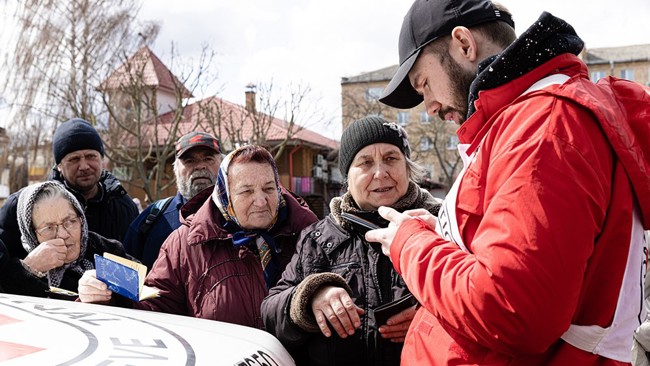
SNF is supporting the Engineering Humanitarian Action (HAC) Initiative, which launched in 2020 as a partnership between ETH Zürich’s ETH for Development (ETH4D), the EssentialTech Center (ETC) at EPF Lausanne (EPFL), and the International Committee of the Red Cross (ICRC). The HAC initiative will incubate scientific and technological innovations that improve service delivery to populations affected by humanitarian crises. These populations experience unique challenges accessing services and have specific needs especially with regard to health and wellbeing, which are often unmet for many reasons, including the difficulty of incentivizing innovation specifically with these populations in mind. This initiative aims to bridge this gap.
It is envisioned that solutions developed through the initiative will benefit the ICRC as well as the humanitarian sector more broadly. One of the program’s three priority areas is Digital Health and Medical Technologies, in line with ICRC’s institutional strategy for 2019-2022, along with Energy and Environment, and Data Science and Cyber Security. The initiative will identify, develop, test, and implement scalable solutions to address challenges in humanitarian response. It will also train humanitarian actors in technology and engineering to support the adoption of innovative technological solutions.
The HAC initiative is set up around 3 main work streams:
Stream 1: Identify applied research projects that address key challenges in humanitarian aid. In response to regular Humanitarian Action Challenge (HAC) calls for proposals, researchers from ETH and EPFL will work collaboratively with the ICRC to submit project proposals that are meant to address real-world challenges in humanitarian response efforts. Proposals of the greatest quality, relevance, and real-world applicability will be selected for funding.
Stream 2: Develop, test, and implement innovative and scalable solutions. A subset of the research projects identified under Stream 1 will be supported for further development and incubation into tangible solutions. In addition, approaches to distribute these solutions most effectively at scale will be assessed, e.g., investigation of potential business models, or direct technology transfer to ICRC or other aid organizations. The ultimate vision is for these projects to result in tangible, sustainable solutions for use by humanitarian actors.
Stream 3: Train humanitarian actors in technology and engineering. Humanitarian actors will be trained in the fields of technology, engineering, and digitalization, with the aim of enabling greater adoption of innovative, evidence-based solutions. Reciprocally, ICRC staff will be invited to contribute to select courses at ETH and EPFL to facilitate greater exposure of students to the humanitarian aid sector. Thus, the initiative will also encourage a stronger and more dynamic link between the academic and the humanitarian sectors.

